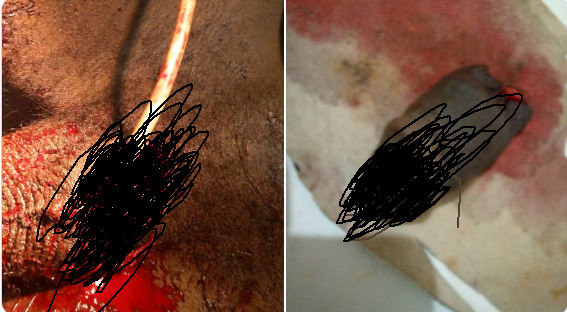NGOs, Individuals Bemoan Challenges Faced in Tackling Girl Child Trafficking, Abuse
By Nneka Nwogwugwu
Trafficking and the issue of girl child abuse are issues that have gotten attention by the Nigerian government for a long time.
Some cases of trafficking and abuse have been handled by the government with the help of some individuals and non-governmental organisations which also have interest in tackling the menace.
However, there are also many cases of the issue which have encountered serious setbacks as a result of challenges faced by government, non-governmental organisations and some concerned individuals in handling the situation.
NAPTIP DG responses on cases of trafficking and child abuse
A number of cases of trafficking have sprung up in Nigeria and as at July 2023, Nigeria recorded a total of 11,531 cases with over 600 persons convicted, a report from the National Agency for the Prohibition of Trafficking in Persons (NAPTIP) stated.
At the launch of the ‘compendium of good practices of state task forces in combating trafficking in persons (TIP),’ the Director-General of NAPTIP, Fatima Waziri-Azi, said that TIP is one of the greatest challenges Nigeria has encountered, adding that it inflicts unimaginable suffering upon countless individuals around the world.
She said that “human trafficking victims often face multiple challenges when seeking help and support .”
Calling on collaborative efforts between government and NGOs, she urged that “these efforts can ensure that victims receive the necessary protection, and rehabilitation that they need.”
However, these efforts are mostly stalled by challenges from victims, religious bodies and security personnel, findings from investigating this issue revealed.
Comedian Mr Lyfe narrates personal experience with 10-year-old Aisha
A typical example is a recent one with Aisha, a 10-year-old beggar, who went viral for using captivating Port Harcourt slangs to attract passers-by to give her money.
Her funny ways of using popular Port Harcourt slangs to beg, attracted a Nigerian comedian, Mr Lyfe, who noticed her while he was doing a video shoot at Rumoukoro Junction.
Surprised by how much she can say such slangs, a video was made with her and posted on social media.
Speaking with Mr Lyfe in an interview, he disclosed that the video attracted concerned individuals and NGOs with offers of help to take her away from the street and enrol her in school.
As many people registered their interests to help her, it was later discovered that Aisha was not the child of the woman she begs with.
Her biological parents live in Chad and was sent to Nigeria to live with her mother’s friend, who usually take her along for street begging.
When efforts were made by individuals to offer education and shelter to her, the supposed guardian declined and immediately withdrew Aisha from any form of help.
Prior to that, funds have already been raised and sent to the guardian which she collected.
Giving reasons for not accepting the offer of education , Mr Lyfe informed that they used religion as their excuse. They claimed that they were not accepting formal education but Islamic education.
They also stopped every other help people lent to her and lied that Aisha has gone back to her parents.
According to Mr Lyfe, he later discovered that Aisha was still in Nigeria.
Oblivious of why the guardian didn’t want people to help Aisha, he said that it was suspicious but he decided to withdraw himself from the situation and concentrate on his own life.
Following the issue of why the guardian will be hiding Aisha, the Rivers state commissioner of
Women Affairs, Dr Roseline Uranta was contacted.
Speaking through her media aide, Mr Ayo Tamuno, concrete explanations were not given as
numerous excuses were made even up till the time of filing this report.
CHHELD’s involvement in tackling the menace
Speaking to the Executive Director of the Centre for Human Rights, Health Ethnic Harmony and Livelihood Development (CHHELD) in an interview, affirmed that his organisation has recorded numerous challenges faced while trying to rescue teenagers and adolescents from abuse.
According to him, his challenges have always been, security personnel, bribe on victims and religious bodies.
He said, “Tackling cases of abuse have challenges. In my organisation our number one challenge is security personnel who involve in bribe to stop court cases.
“ A typical case is when a teenager was raped by caregivers but because the caregivers are wealthy, the case that we pushed to court later ended because they bribed police officers to kill the case.
“Our lives are also threatened by cultists and security personnel. The victims most times run away in the middle of everything after you must have spent money to pursue their case.
“Another challenge is religious bodies. When a case of rape and abuse is being investigated, some of the guardians invite their pastors and alfas to preach forgiveness.”
Speaking on how to address these challenges, he urged the state and federal governments to ensure state councils and prosecutors do their jobs effectively.
He also called for partnership between the government and CSOs, while seeking for intense awareness creation on these challenges affecting civil society organisations.
Security concerns on cases of abuse and trafficking
Corroborating the statement from Mr Dandyson, the Rivers State Police Press and Public Relations Officer, Grace Harris Koko in an interview said that police personnel don’t tamper with investigations on cases of child abuse.
She said that when such cases are handed to the court, police no longer have a hand in the case.
However, she also informed that the police only withdraw case only if the victims beg for withdrawal.



Comments
Post a Comment